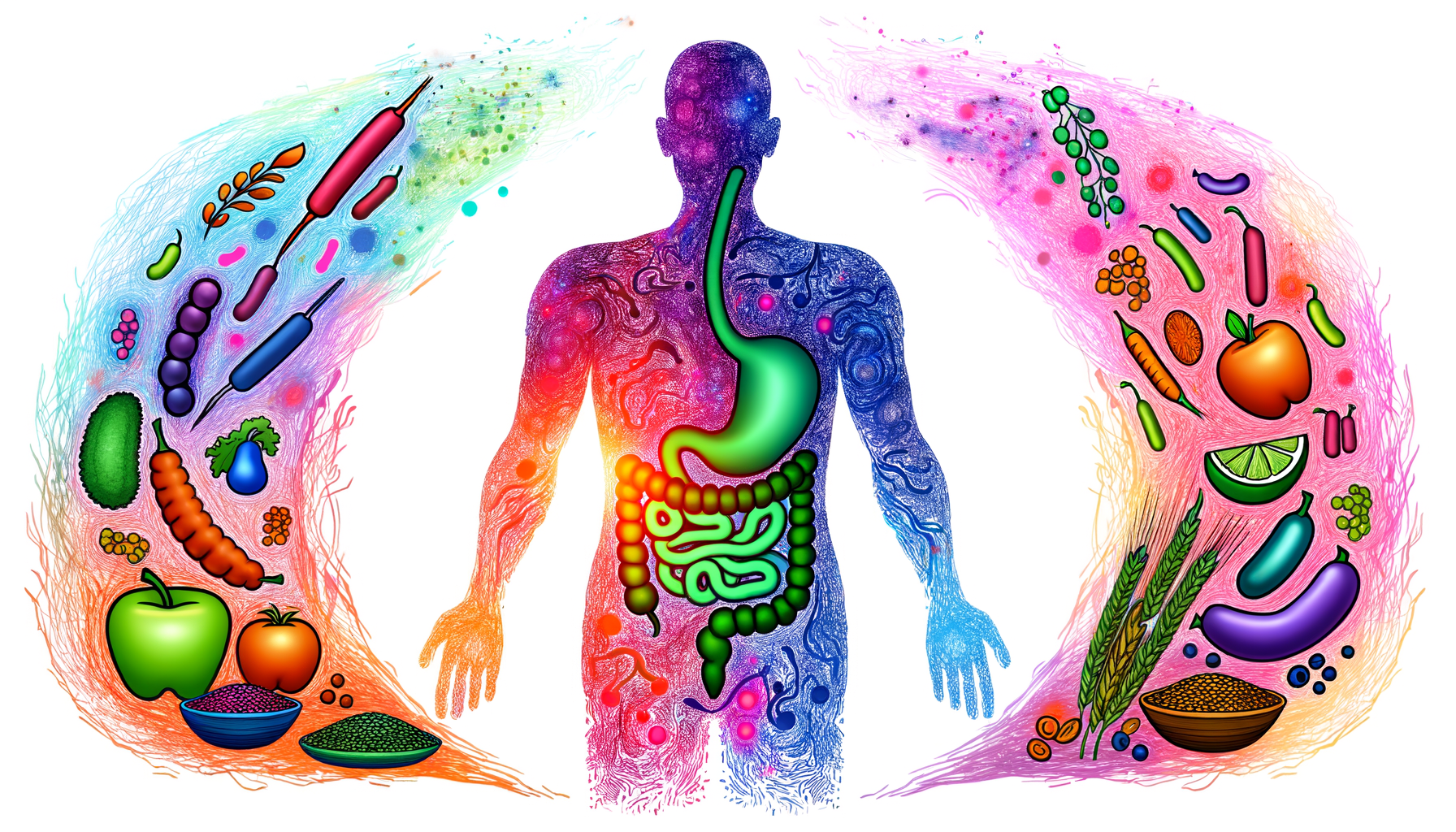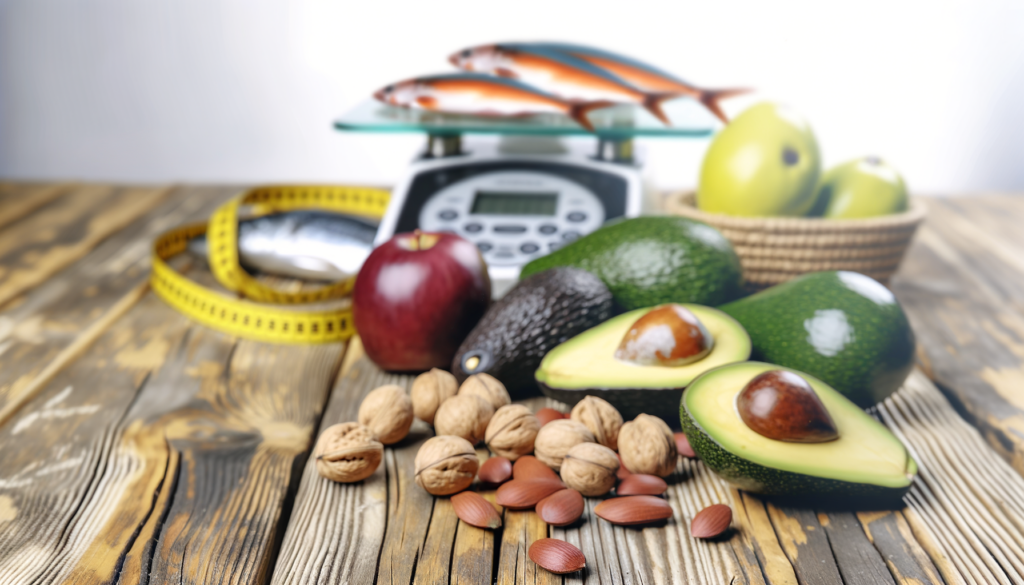Understanding the Gut Microbiome’s Role in Calorie Absorption and Metabolism
The gut microbiome, a complex community of microorganisms residing in the gastrointestinal tract, plays a crucial role in our overall health, particularly in how our bodies absorb and metabolize calories. Recent studies have shed light on the significant impact of the gut microbiome on nutrient absorption, energy balance, and metabolic health.
The Gut Microbiome and Calorie Absorption
A study conducted by Arizona State University (ASU) and AventHealth highlights the differences in calorie absorption between a fiber-rich diet and a highly processed Western diet. In this study, participants followed two distinct diets for 22 days each, with one diet rich in fiber and whole foods (the microbiome enhancer diet) and the other consisting of highly processed foods (the Western diet). Both diets provided the same number of calories and similar proportions of protein, fat, and carbohydrates.
The results showed that participants on the fiber-rich diet absorbed significantly fewer calories compared to those on the processed diet. On average, participants on the microbiome enhancer diet lost 217 calories per day more than those on the Western diet. This difference was attributed to the higher levels of undigested food, bacterial biomass, and short-chain fatty acids (SCFAs) in the feces of participants on the fiber-rich diet. These findings suggest that a diet rich in fiber and whole foods can lead to a negative energy balance, which is essential for weight loss.
How Gut Microbes Influence Energy Metabolism
The gut microbiota is involved in several mechanisms that affect energy metabolism. One key mechanism is the production of SCFAs through the fermentation of dietary fibers. These SCFAs interact with G protein-coupled receptors (GPCRs) in the host, affecting insulin sensitivity and regulating energy metabolism. For instance, SCFAs can enhance insulin sensitivity in adipocytes and peripheral organs, thus influencing how the body uses energy.
Additionally, the gut microbiota influences the development and function of the gut epithelium, gut motility, and the extraction of calories from the diet. It also regulates the release of hormones such as GLP-1, which promotes satiety, and pancreatic polypeptide, further aiding in weight management. These hormonal changes can mimic the effects of new weight-loss drugs like Ozempic and Wegovy, which work by mimicking the action of GLP-1.
Dietary Impact on Gut Microbiome Composition
The composition of the gut microbiome is highly adaptable to dietary changes. The ASU study found that the microbiome enhancer diet had more bacteria that break down fiber compared to the Western diet, which had more bacteria that consume simpler carbohydrates like glucose. This adaptability suggests that dietary interventions can significantly alter the gut microbiome’s function and its impact on energy metabolism.
Processed foods, which are quickly absorbed in the upper gastrointestinal tract, provide fewer substrates for the gut microbes, leading to a less diverse and less active microbiome. In contrast, a diet rich in fiber and resistant starch provides more substrates for microbial fermentation, promoting a thriving and diverse gut microbiome.
Implications for Weight Management and Metabolic Health
The relationship between the gut microbiome and obesity is well-documented. Studies have shown that the gut microbiota can influence fat accumulation by increasing the absorption of glucose in the intestine and promoting fat synthesis in the liver. However, a microbiome-friendly diet can mitigate these effects by reducing calorie absorption and promoting the production of SCFAs, which have beneficial effects on insulin sensitivity and glucose homeostasis.
For individuals aiming to manage their weight or improve their metabolic health, incorporating a microbiome-friendly diet can be a powerful strategy. This involves consuming more whole foods, fiber, and resistant starch, while minimizing processed foods. Tools like the Calorie Calculator Cloud can help individuals track their calorie intake and make informed dietary choices that support both their overall health and the health of their gut microbiome.
Therapeutic Approaches and Future Directions
Given the significant impact of the gut microbiome on energy metabolism and weight management, there is a growing interest in therapeutic approaches that target the gut microbiota. Probiotics, prebiotics, and synbiotics are being explored for their potential in modulating the gut microbiome to improve metabolic health. For example, probiotics like those found in Yakult can help restore a balanced gut microbiome, while prebiotics such as inulin and oligofructose can feed beneficial bacteria, promoting their growth and activity.
Future studies are needed to establish cause-and-effect relationships between the gut microbiome and energy metabolism in humans. Longitudinal observational studies and randomized controlled trials will be crucial in providing mechanistic evidence and informing specific dietary recommendations and therapeutic strategies.
Conclusion and Practical Advice
The gut microbiome is a critical component of our metabolic health, influencing how we absorb and metabolize calories. By adopting a microbiome-friendly diet rich in fiber and whole foods, individuals can support a healthy gut microbiome, reduce calorie absorption, and promote better metabolic outcomes.
For those looking to make a positive impact on their gut health and overall well-being, here are some practical steps:
– **Increase Fiber Intake**: Focus on whole foods like oats, lentils, brown rice, fruits, and vegetables.
– **Minimize Processed Foods**: Avoid foods like white bread, ground beef, sugary snacks, and processed meats.
– **Use Nutritional Tools**: Utilize tools like the Calorie Calculator Plans to track your diet and make informed choices.
– **Consider Probiotics and Prebiotics**: Incorporate probiotic-rich foods or supplements and prebiotic fibers to support your gut microbiome.
By understanding and leveraging the power of the gut microbiome, we can take significant steps towards better health and well-being.








